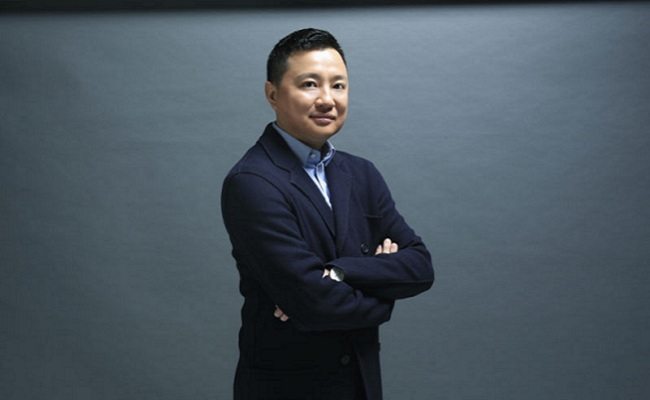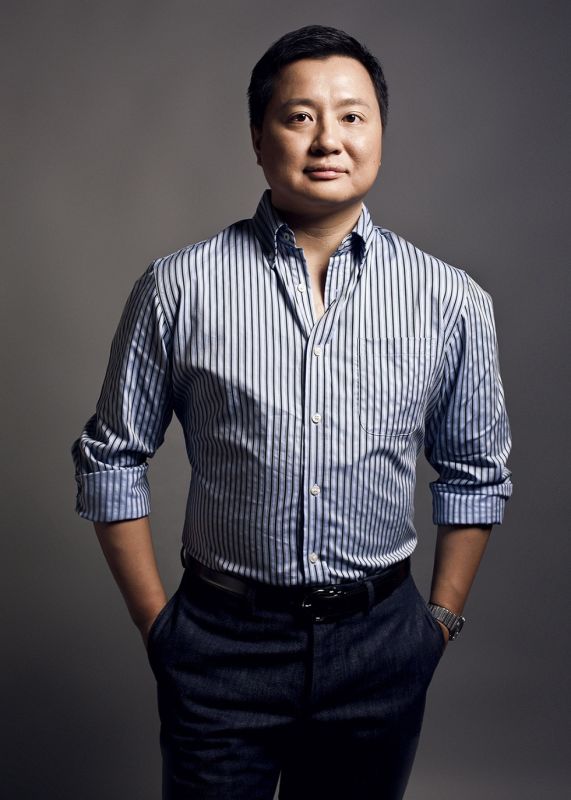
Car-hailing app Yidao Yongche’s CEO Zhou Hang says unfair price competition will end, and opportunities for quality service providers will start to emerge.
In 2010, before there was a Didi or an Uber, Yidao became the first company in China to start a car-hailing business. Six years later, it is not first in terms of market share, but Yidao still provides car services in 74 cities in China and 24 cities in the United States, has 1.35 million active users and a market value of US$15 billion.
After Didi announced its acquisition of Uber’s operations in China, people pointed out half-jokingly that Yidao had jumped from third to second place in the market.
Yidao, as the first company of its kind, was initially badly affected by opposition from local authorities, just as Uber has been in many countries. Subsequently, even though the company targeted high-end passengers, it was still hit by the rise of Didi and Uber China, which became popular on the back of heavy subsidies and cheap prices.
In July 2016, the Chinese authorities finally legalized car-hailing apps, which was good news for all online service providers, including Yidao and Didi, that had been operating in a grey area. Crucially, the new regulations stipulated that unfair competition—giving heavy discounts and subsidies for services at below-cost price—should stop.
For many consumers, that means Didi will no longer be so cheap. But Yidao Yongche, which has always offered premium services at higher prices, should find it easy to fit in with the new regulations.

Will the company seize the opportunity to grow? How will it survive the strong competition? Will Didi, through its merger with Uber, lose customers under the new regulations? Zhou Hang, CEO and founder of Yidao, a graduate of CKGSB’s EMBA program, talks to CKGSB Knowledge about his company and the future of the “internet of cars”.
Q. Yidao Yongche was the first online car-hailing business in China. How did the idea come about?
A. At that time, there was no one in the online car-hailing market, we were the pioneers. We felt it was hard to find a taxi in rush hour periods, and we wanted to save people from having to sit in smelly old taxis, so we created Yidao.
Q. Yidao has always been affected by government relations. The media reported that Baidu was going to invest in Yidao, but due to concerns that the company’s relationship with government departments was not so good, it went for Uber China instead. Is that true? What is your initial reaction to the new policy now that online car-hailing has been legalized?
A. Yes, Baidu invested in Uber, not us. Legalizing the online car-hailing service was definitely within my expectations, and the specifics of the policy are very similar to what we suggested to the transportation authorities two years ago. But it came so late. If the policy had been introduced two years ago, or even last year, then no one could have taken over our number one position in this market. So for us, it would have made a big difference. We always position ourselves as ‘high quality’, which fits with the government’s requirement that “[price] cannot be lower than cost”. Didi and Uber have always been cheaper than us, and their price war was fierce, so we didn’t win in terms of market share.
Q. Yidao’s service has always been more expensive than competitors. For example, the same ride may cost RMB 13 on Didi, 10 on Uber, and 20 on Yidao. The new policy stipulates that car hailing should not be operated at lower than cost price. Yidao has positioned itself within the rules, so does that mean the new policy will be a blow to Didi and Uber?
A. It’s not simple as that. Every company will make changes to adopt to the latest trends in the market, including Didi and Uber, so we can’t say this will be a blow for them. But, comparatively speaking, Yidao’s users are more quality-focused and less price-sensitive, so we are less affected than they are, that’s for sure.
Q. Some people say Yidao Yongche is no longer the number one player because it has been hindered by unclear rules and policies, and higher prices have resulted in smaller market share. But now there is a new policy, which means you have a legal business with no vicious competition. Does that solve Yidao’s problems?
A. With the new policy coming out, the price war and overly-large subsidies will be less common, which is good because that was the biggest pressure Yidao faced in previous rounds of the competition. But, in terms of policy, there is another thing that all players are concerned about—free market entry. The core issue is whether the government will control the number of cars. Currently, the central government delegates power to local governments, which might make detailed rules. The most important thing is they should not set a quota for cars. The taxi business is not a ‘bad’ service, but it becomes ‘bad’ when the government steps in and sets numbers. The government should really implement rules and govern control quality, not dictate the number of vehicles.
Q. How is Yidao Yongche different from Uber and Didi?
A. Our advantage lies with our high-quality service. For example, with Uber you can’t book a car in advance, so in this way we are more experienced in terms of personalized requests. Being able to reserve in advance is very important because it fulfills more personal requirements. Business people will reserve car in advance for other people, but what Didi and Uber is doing is more efficiency-oriented.
We have a different mission as well. My understanding of Uber’s mission is that it provides convenient transport for people, so the quality of the car is not as important as efficiency. But our goal is to make the customer’s riding experience better, so from the very beginning we are not targeting the masses. 90% of Didi’s users use Didi Express (the cheapest service of Didi), meaning they care about price and efficiency, but Yidao is high-end and we care about service quality and users. So on that basis, Yidao is better at offering premium services.
Q. In the early stages, over 30% of Yidao’s users were corporate, because business people need better cars and service. What is your user base like now?
A. Now less than 10% of users are corporate. In competition with Didi and Uber, Yidao unavoidably positioned itself a little bit lower and cheaper than before. But compared to Didi and Uber, Yidao’s users are more high-end, and, in terms of cities, our users are mostly in tier-one and tier-two cities, with bigger per-transaction amounts, they tend to be older, they take longer rides and they pay with different kinds of credit cards. Those elements give our users a different profile.
Q. Didi and Uber China also have premium services and they will raise their prices under the new regulations. Do you worry that they are now targeting the same group of consumers as Yidao Yongche?
A. Yes, they will make adjustments so there will be changes again. But we are not just competing on premium car services, but rather using the service as a portal, and extending to the automobile industry. For example, Yidao’s drivers can obtain car insurance and maintenance services, and passengers can enjoy LeTV member services [LeTV is a video-sharing platform for watching TV shows and movies]. There are lots of possibilities we are exploring.
Q. If everyone starts to focus on services, and Internet companies get involved in the car market, what kind of changes will it bring to the whole industry?
A. In fact, the market for high-end cars is not so large. After [prices go up], many users will go back to using public transportation. The price war between Uber and Didi last year created a big bubble. Some Express users were using the bus or subway before, and the price war brought them to the surface roads. This was said to be ‘educating users’, but that’s what the government wasn’t happy about. It was said that car hailing is part of the sharing economy model and that we are ‘green commuters’, but what it did was drag more people onto the roads, which apparently doesn’t help the bad traffic, and in fact adds an extra burden to it. But everyone has the right to pursue a better life, and the government’s desire to reduce pollution doesn’t mean that people should hold their breath and squeeze onto a bus or a subway every day. But we have to admit that the high-end car-hailing market is not that big. We have three months before the new policy goes into effect, and in these three months, everyone will be endeavoring to hold on to more users.
Q. Yidao has also been using subsidies this year, and some users have complained that the coupons are not usable and that waiting times are getting longer. How do you plan to improve your service?
A. Scaling up and providing good service are not necessarily compatible. The bigger you become, the harder it is to manage. If you want to be a small business with excellent service, that’s okay, and so is being big and providing ordinary service, but I haven’t seen anyone that can be big and excellent at the same time. That is what I have been thinking about in the past half-year. I think in our DNA, we basically aim to have passengers enjoy the ride. It is not about providing convenience for the masses. So from now on, we will stick to our original purpose, do what we are good at and what we want to do, and not just compete for market share. I’m happy to be small and excellent, I don’t want to hear people telling me that Yidao’s service is not as good anymore. Even if Yidao is not the largest company in the industry, I want our users to enjoy their experience with Yidao and feel that Yidao is unique.
An urban resident, we estimate, spends 400-500 hours on commuting a year, and we are thinking about how we can make better use of those hours. It should be in a cool way that surprises people. Uber did things like providing flowers or a meal, but those are just marketing gimmicks to attract the media, it doesn’t happen in your life or mine. But we want to give our users added services, like allowing them to continue to watch a TV series they watched half way through at home. And we can give them consumer coupons as well, not for car-hailing discounts, but more like a ticket for a concert.
Q. In 2015, LeEco bought a 70% share of Yidao Yongche. What impact did the merger have?
A. We have become part of the eco-system of LeEco and have more resources to provide a personalized service. Moving forward, we’ll have a car-sharing eco-system. We realized that in the future, it is going to be a car-sharing society, so we are creating an eco-system for that. Let me put it this way: in future if you want to go from point A to point B, even if you want to drive yourself, you don’t have to own a car. We want to change young people’s values. Don’t work for a car or a house! You are young, you should go for your dreams!



















